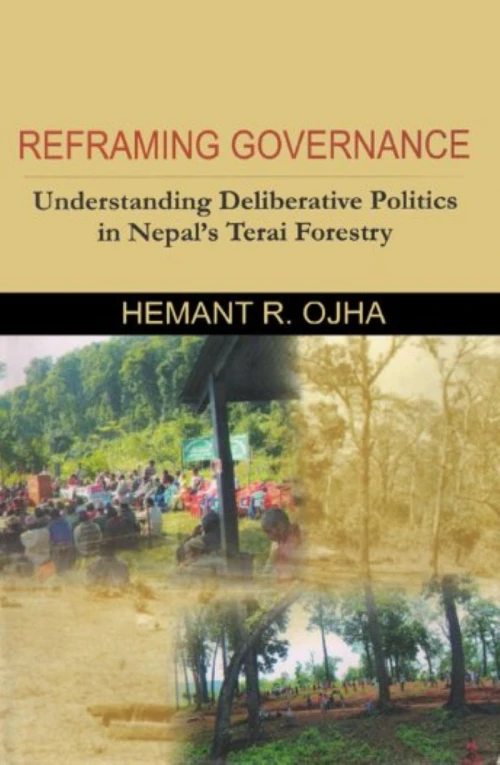About the Book: Reframing Governance: Understanding Deliberative Politics in Nepal's Terai Forestry The book develops a fresh approach to understanding governance using key concepts of Pierre Bourdieu (symbolic violence, doxa, field and habitus) and Jurgen Habermas (deliberative politics). Taking a case study of forest governance in Nepal Terai, the book analyses Habermas's ideal of Bourdieu's theory of practice.
The case study shows that despite growing rhetoric of participatory and decentralized governance of forestry in Nepal, the actual practices of forest governance in Nepal Terai are controlled by dominant actors (mainly techno-bureaucratic and feudal political agents), with limited deliberative spaces actually available to, or proactively claimed by, the disadvantaged groups of people dependent on forests. The book demonstrates how rhetoric 9of participation and inclusion is actually a part of symbolic instrument of domination and reproduction of pre-existing power relations. The analysis shifts the usual emphasis on 'conscious will' and 'rational behaviour' of individual human agents as the key elements for understanding governance, to an approach that interrogates the often overlooked symbolic structures of governance that systematically disadvantage some and privilege others.
Thus, the book proposes that the analysis of governance and politics should be expanded to include the processes of domination and hegemony in the symbolic domain, including language and processes of deliberation, through which power relations are reproduced in a society. About the Author: Hemant Ojha Dr Ojha has over 15 years of experience in research studies and development actions. He is a founder of Forest Action Nepal and continues to be its advisor. He has worked as researcher/specialist/consultant for several Nepal-based and international agencies. He did doctoral research in Development Studies (with a focus on Natural Resource Governance) from School of Development Studie










